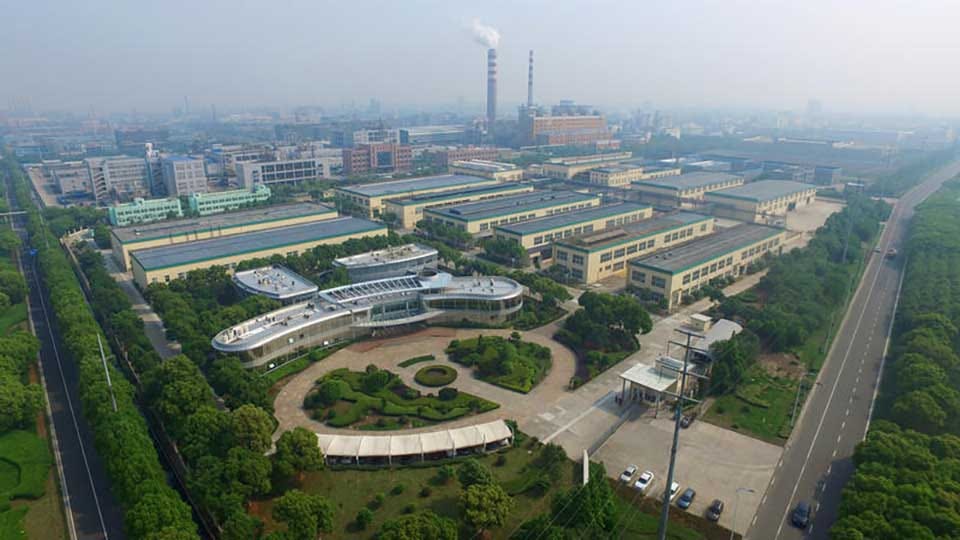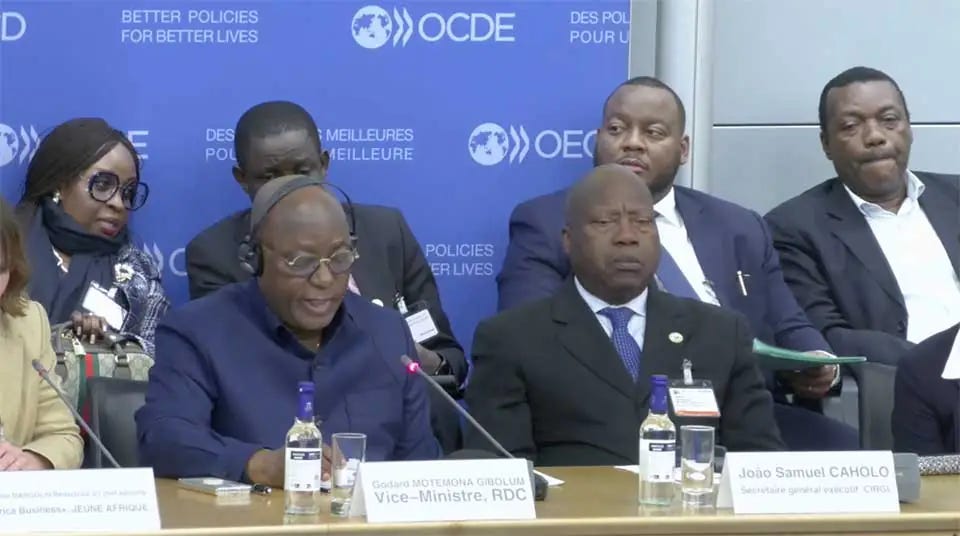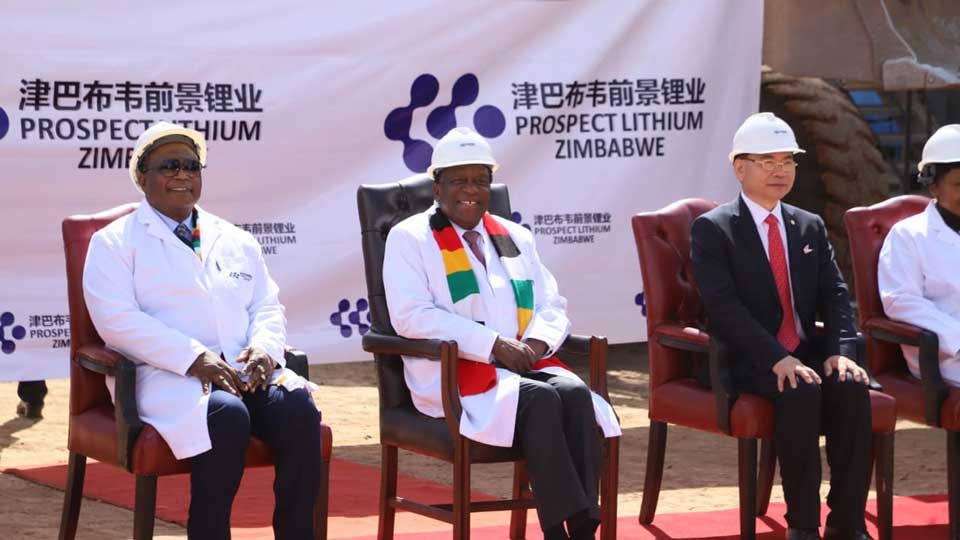Ignoring China Won’t Help African Countries Move up the Critical Minerals Value Chain

By Obert Bore, Critical Minerals Editor
African mining ministers and global leaders recently gathered in Paris to discuss the continent’s role in the future of critical minerals and responsible sourcing. At the OECD’s High-Level Dialogue on Africa, one message came through loud and clear: Africa must move beyond simply exporting raw materials and instead invest in local refining and manufacturing.
The goal? value addition — the ability to process critical domestically and manufacture battery components at home.
Yet amid these bold declarations, a glaring silence persisted.
Notably, virtually no speaker acknowledged China’s dominant role in the global critical minerals supply chain. This omission was more than a diplomatic oversight—it revealed a deeper reluctance to confront an uncomfortable reality: Africa’s push for value addition will depend not only on ambition but also on its ability to compete with—or strategically collaborate with—China, the world’s leading refining powerhouse.

Ghana’s Lands Minister, Emmanuel Armah-Kofi Buah, outlined plans to process lithium domestically. Nigeria’s Minister of Solid Minerals, Dele Alake, emphasized reforms to attract investment in refining lithium and iron ore. Meanwhile, Morocco’s Minister of Energy Transition and Sustainable Development, Leila Benali, positioned her country as a strategic transit and certification hub under a new initiative called the “OTC Corridor” (Origin, Transit, and Certification).
Although these aspirations are commendable, translating them into functional industrial ecosystems will require overcoming significant barriers: energy shortages, infrastructure gaps, water scarcity, weak logistics, limited technical skills, and capital constraints, among others. These are precisely the barriers China has spent over two decades systematically dismantling and innovating to find lasting solutions.
Why Battery Production Isn’t Cost-Effective in Africa – Yet
Producing batteries—or even intermediate materials like battery-grade lithium hydroxide—requires far more than just raw mineral reserves. It demands consistent access to affordable, reliable electricity.
China’s industrial zones enjoy state-subsidized coal, hydro, and nuclear energy, and are on track to derive 50% of their power from low-carbon sources such as hydro, solar, wind, nuclear, and battery storage by 2028. In contrast, countries like Zimbabwe, South Africa, and Nigeria contend with frequent power outages, undermining industrial stability.
Water is another critical input. Lithium processing, in particular, is water-intensive. While China has invested heavily in recycling and desalination infrastructure, many African countries face chronic water shortages, worsened by drought and underdeveloped water management systems.
Technology is a third essential ingredient—and perhaps the most elusive. Despite calls for value addition, most countries lack the technological capacity and industrial know-how needed to compete in the mid- and downstream segments of the battery supply chain.
China, by contrast, employs advanced technologies and robotic automation in the refining and processing of critical minerals—reducing labor costs while improving quality and consistency. Even if China were willing to export some of this technology to support value addition abroad, sustaining it would require significant long-term investment in human capital, including technical training, maintenance capacity, and systems integration.
Moreover, Beijing’s current policies reflect a restrictive stance on the export of high-end processing technologies, particularly those related to heavy rare earth elements and other critical minerals with potential dual-use in both civilian and military applications. These export controls underscore China’s strategic caution and could severely limit the extent of technology transfer to African nations seeking to build downstream capabilities.
Are African Policy Makers Chasing a Mirage?
This raises uncomfortable but necessary questions: Are African leaders genuinely committed to value addition or simply echoing public expectations? If the commitment is genuine, then why is there so little discussion about the real costs and practical challenges of moving up the value chain?
Take, for example, the widespread call for African countries to build their own refineries and smelters. Economically, this approach is deeply flawed. Without economies of scale, dependable infrastructure, and integrated regional supply chains, many of these projects risk becoming white elephants—expensive facilities that fail to deliver sustainable returns.
While some Chinese firms have partnered with African governments to establish processing plants and refineries, the level of value addition remains minimal. In the case of lithium, for example, most projects stop at converting raw ore into lithium concentrates, falling short of producing higher-value compounds like lithium carbonate or lithium hydroxide, which require more advanced technology and expertise.

As Morgan Bazilian, director of the Payne Institute at the Colorado School of Mines, notes, the “midstream” segment—refining ores into industrial-grade chemicals and metals—is strategically important and will likely remain under China’s control for the foreseeable future.
The unspoken truth is that China has little incentive to relinquish its near-monopoly on mineral processing—unless African countries present a united front and negotiate from a position of strength.
Rather than duplicating China’s model, countries endowed with critical minerals should carve out strategic niches by building regional hubs where processing is viable and cost-effective.
The African Green Minerals Strategy, recently adopted by the African Union, offers a promising blueprint for regional collaboration—emphasizing investment in shared processing centers within resource-rich corridors such as the DRC-Zambia Copperbelt and the Zimbabwe-Namibia lithium belt.
But realizing this vision requires more than policy alignment. It demands foundational investment in energy infrastructure, such as the DRC’s Inga Dam or Mozambique’s Cahora Bassa hydropower project, to supply reliable electricity to processing zones. It also calls for strategic partnerships with Chinese universities and firms to build expertise in mineral engineering, automation, and industrial systems essential for competitive value addition.
It’s Time for a Difficult Conversation
The OECD dialogue laid bare a stark disconnect between Africa’s ambitions and the structural realities of global mineral markets. If the continent is serious about capturing more value, it must stop pretending that China isn’t decades ahead.
China’s dominance in refining and battery production didn’t happen by accident. It stems from a long-term strategy backed by massive infrastructure investment, industrial policy, and technological capability, not just mineral access. Africa must craft its own strategy—grounded in realism, regional collaboration, infrastructure readiness, and targeted partnerships—to compete on meaningful terms.
Obert Bore is the Zimbabwe-based critical minerals editor for The China-Global South Project



Interesting that the location for this event is in Paris and not China. It seems the West is trying to undermine the green energy transition and looking for another Ukraine. As the article pointed out, no one has the infrastructure, human capital or technology to do what China does. China is also the biggest user of these materials giving it the economy of scale and the China price. The African countries need to ask themselves will the West put in the money to move them up the value chain or match China's price? Each country needs to ask itself if it will be another Ukraine between BRICs+ and the West.